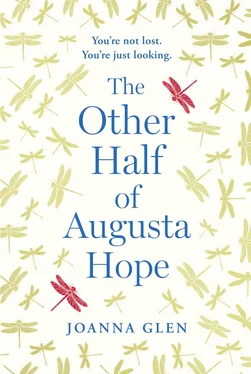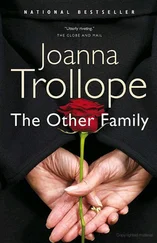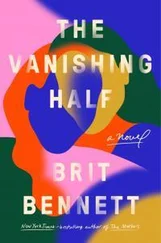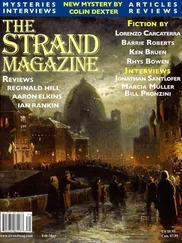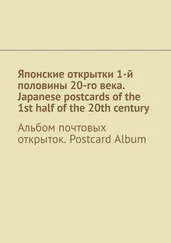‘Really really,’ I said, and I wished it was true. I wished I could make things not as they were. I wished I could save Zion from the place where he’d been born.
My mother had always been fond of knitting, sewing and tapestry, and she tried to interest us in terrible craft projects where you made stuffed owls or knitted blankets for dolls.
She offered a special service for Stanley Hope Uniforms, which involved embroidering names onto PE bags, pencil cases, aertex shirts, anything really.
The minute we were born, our names were sewn and embroidered and painted and framed, with creeping flowers twisting and turning on the ascenders and descenders.
Barbara Cook at number 2 was inspired by my mother’s craft work, and it was this that sent her off to art classes, and this that caused her to start wearing wrap-around Indian skirts, which didn’t go well with her leather slip-on court shoes, flesh-coloured tights and anoraks.
Helen Dunnett at number 3 (who had a very thin grey whippet) liked to crochet things such as little boys’ ties, babies’ bonnets and holders for toilet rolls – and even a coat for the whippet, in pale green.
The craft craze must have been contagious because before you knew it, over half of Willow Crescent’s women were crafting away in their spare time, creating rag dolls, candles in the shape of triangular prisms, baby clothes, three-dimensional special-occasion cards – you name it, they made it.
My mother said her dream was to have a craft room, like my father had a study, but, although he was out of the house six days a week, he never once offered to share.
His study (the third bedroom) was the only part of the interior of the house of which he was in charge. His desk was immaculate, his dark green files hung in alphabetical order and his cork boards were papered in taut rectangles. He was also in charge of the double garage and the extra single garage and the garden, in which not one thing was out of place.
It was Barbara Cook who had the idea of the Willow Crescent Craft Fair . Everybody agreed that Number 1 would be the best location for it, not only because of our larger-than-average garden, but, in the event of rain, our immaculate double garage, with the additional single garage for the side shows, which the children would organise.
‘We’ve been thinking of a way to raise funds for the farm school where Graham Cook goes,’ said my mother to my father. ‘We all thought a Craft Fair would be a good idea.’
‘Lovely,’ said my father. ‘That would give the Cooks a bit of a boost.’
‘Yes, exactly,’ said my mother, allowing this burst of good-heartedness to flourish before slipping in the suggested venue.
‘I wouldn’t want everyone tramping over the carpets to use our toilet,’ said my father.
It was some hours later, when my mother and father had undergone several circular arguments and become rather tetchy with each other, and by which time Julia and I had gone to bed, listening out anxiously, in case our parents were about to get divorced, that we heard my father exclaim, ‘I shall damn well build an outside toilet.’
My father laboured on this outside toilet through the spring and summer, and when it was finished, he painted it, and bought a special red/green lock to show if the toilet was vacant or occupied. My mother made an arrangement of dried flowers for the shelf, and bought one of Helen Dunnett’s crocheted toilet-roll holders – in what Helen called burnt russet.
After that, my father looked a little lost on Sundays, as if some great purpose had been removed from his life.
My mother and her friends held committee meetings every five minutes around our kitchen table, and the children started planning side shows like Count the Number of Sweets in the Jar or Guess the Weight of the Cake.
I offered to sort through the second-hand toys and put prices on them, which, I discovered, my mother would over-write in permanent marker. Amongst them, I found the ugliest rag doll with yellow plaits, a brand-new Peter Rabbit and a drawn-on doll with one arm and one leg, and, in my fury about the wasted time I’d spent pricing the toys, I pulled off her remaining limbs, feeling strange. I put her torso and her separated arm and leg in my bedside drawer, and then I wrote a story where a dead baby was wrapped in cellophane like the un-used Peter Rabbit.
I asked Julia to read it so somebody would know how terrible I was inside my mind where you don’t always have control of things. She hesitated, breathed deeply and said, ‘Everyone has strange thoughts. And maybe you’ve read too many horrible things about Burundi. But we’ll burn it anyway, shall we, Aug? Because that would also be quite fun, don’t you think?’
I did think, but now I wish I hadn’t made her read that story.
I hear her childish voice so clearly, all these years later, that it makes me jump.
I hear her trying to draw me towards the fun, towards the joy, away from the darkness.
There’s a pale moth fluttering towards the light of the candle, here, at the front of the caravan, in the dusk, where I’m writing. I bat her away. She has dark squiggles on her wings, like letters written on sepia paper.
Julia went inside for matches, and we crept to a lovely hidden place behind the shed – I can feel the rough texture of the wooden slats which pulled threads out of our jumpers when we brushed against them and I can see the wire fire basket hung with spider webs. There, in a lovely empty pocket of time, the sort of pocket reserved for brothers and sisters, she and I made a little bonfire in the wire cage, and we stood together, in the warm evening, watching the pages of the story turn into flames.
My father went hysterical when he found us.
I said it was all my fault.
Julia joined in the blame, using a very soft, calm voice at his rage, like a warm shower.
‘We’re sorry, Dad, we’re sorry,’ she said, with her little heart-shaped face crinkled with sorry-ness.
It came to me then, and it comes to me now, that I didn’t feel sorry at all.
One thing the committee could not talk about, as Barbara Cook was running the Craft Fair, was what Graham Cook would do on the day, as, although nobody said it, they all thought the strange drowning noises he made might put people off buying.
But one Saturday, Barbara Cook went to visit her sister, so the committee arranged an ad hoc meeting. My father walked in and out of the kitchen, hoping the meeting would soon be over, practically before it had begun.
‘Perhaps Barbara’s brother might come over and look after Graham at the Craft Fair,’ said my mother. ‘He’s very good with him.’
My father shook his head.
‘He’s unpredictable,’ he said, as he passed through. ‘We wouldn’t want him running amok in the garden.’
‘I would be very happy to look after Graham Cook,’ I said. I knew that Graham was five years older than me, but, in the circumstances, I thought this might still work.
‘Oh no, darling, you couldn’t possibly look after Graham Cook,’ said my mother and father, practically in unison, as my father passed through again. ‘You’re only ten.’
‘I’m nearly eleven,’ I said.
‘If Graham Cook’s angry,’ said Hilary Hawkins, ‘he loses his rag – it’s quite frightening, to be honest.’
In the end, Barbara Cook told the Craft Committee how much Graham was looking forward to the Craft Fair, and on the day, he sat down at the end of the garden in a shady corner next to the candle stall with his red bus, making drowning noises and putting people off coming near.
I went to the second-hand toy stall and bought a red plastic bus, and I sat with my red plastic bus right next to Graham with his red plastic bus, so that holding a red plastic bus would seem more of a normal thing to do. I considered whether I should also make some drowning noises and shoot my limbs out, but came to the conclusion that this might cause a bit too much of a commotion.
Читать дальше
